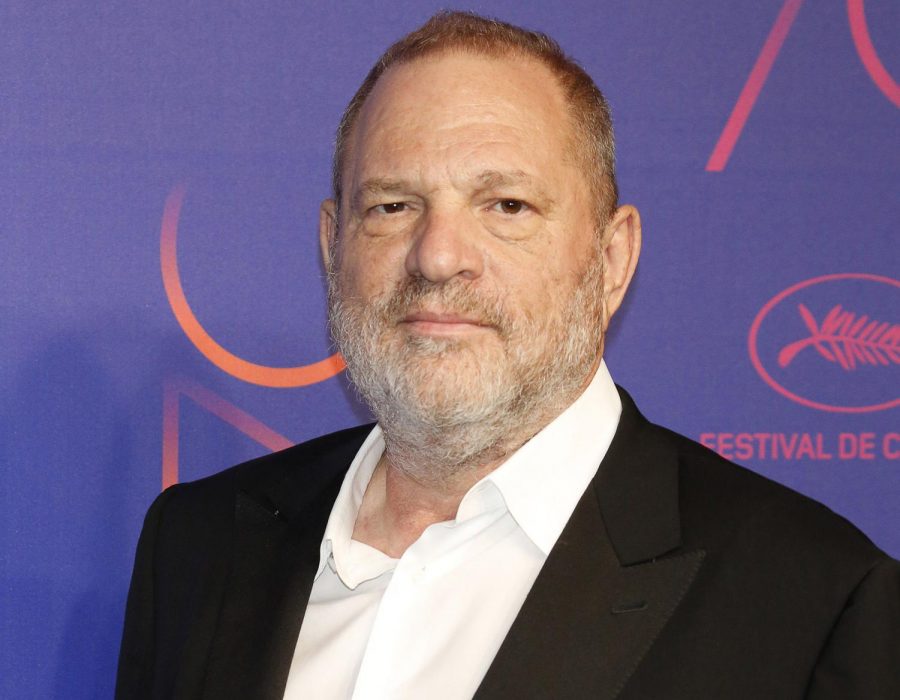Speaking up amidst allegations
Opinion columnist Brenna Wolfe discusses the recent outpouring of sexual misconduct allegations in the media, such as against film producer Harvey Weinstein.
Nov 30, 2017
As many of you have noticed, there has been an incredible amount of sexual misconduct allegations leveled against members of Hollywood, which is also now seeping into the U.S. government.
I have been hearing a lot of criticism about the honesty of the accusers. Both the accusations and the backlash speak to our rape culture.
Wikipedia has a pretty good definition of rape culture, which is “a sociological concept used to describe a setting in which rape is pervasive and normalized due to societal attitudes about gender and sexuality.”
Our society, up until this year, has allowed sexual violence to continue by believing the perpetrators and not the victims. This is rape culture.
There has always been sexual harassment and assault in workplaces. This is in no way a new issue.
In the United States, women have been speaking to this problem since about the early 20th century.
The term “sexual harassment” was coined in the 1960s, and women began making claims that this is a type of discrimination. Before the 60s, it was a part of life and was not considered criminal at all.
The first win was with the passage of the Civil Rights Act of 1964. In the act, Title VII addressed a lot of women’s issues and labeled sexual harassment as a form of sex discrimination. It was now illegal for sexual violence to occur in workplaces.
However, just because policy changed, does not mean that experiences changed. Women and members of the LGBTQ+ community have continued to be sexually harassed and assaulted in workplaces.
What is great about this year of accusations is that our experiences are coming to light and the perpetrators are facing consequences. Before this year, a woman could accuse a powerful man of sexual violence, and mostly likely the woman would not be believed and the man would continue to be successful.
One has to look no further than the office of the presidency to see that a man can have physical evidence of sexual violence and still be successful.
2017 is different because these men are having to face their actions and are receiving consequences.
We are seeing change. This is history.
But why are allegations finally being believed?
I think that with the election of Trump, many people were appalled about rape culture being given power in the Oval Office.
Combined with the “Me, too” campaign, the time was right for the Harvey Weinstein victims.
To the people who don’t believe in the victims, where do you think the statistic of one in three women have been sexually harassed at work came from (Huffington Post)?
When these women come forward, their current job is threatened and their career is at risk. It is hard for victims to come forward, and you ask why they waited 20 years?
Would you say anything about a widely-respected man if you knew that people would not believe you? No, you want to have job security and be successful.
It is a huge risk to speak about sexual violence.
I don’t know a single woman or LGBTQ+ person that hasn’t been sexually harassed. That is how prevalent our rape culture is.
The first time I was cat-called, I was 11 years old. I was scared.
When I was 16 years old, a man in his 60s made repeated advances on me at my work. Right now, I have a coworker who is constantly hitting on me and even grabbed my butt in the workplace.
This is the reality for women.
What does this look like at UNI? My experience is that there is prevalent, intrusive sexual harassment by cat-calling, hollering and whistling.
During my freshman year, I had a Wednesday night class both semesters. After every class, I felt uncomfortable and scared on campus because men had repeatedly yelled sexual things to me from their car.
I didn’t know if they would get out of the car or if they would follow me home. I believe that a lot of UNI students feel unsafe because they have had similar incidents of sexual harassment.
I think UNI students should follow in the footsteps of the brave women across the country: we need to speak about the injustices happening on this campus in order to make change.








